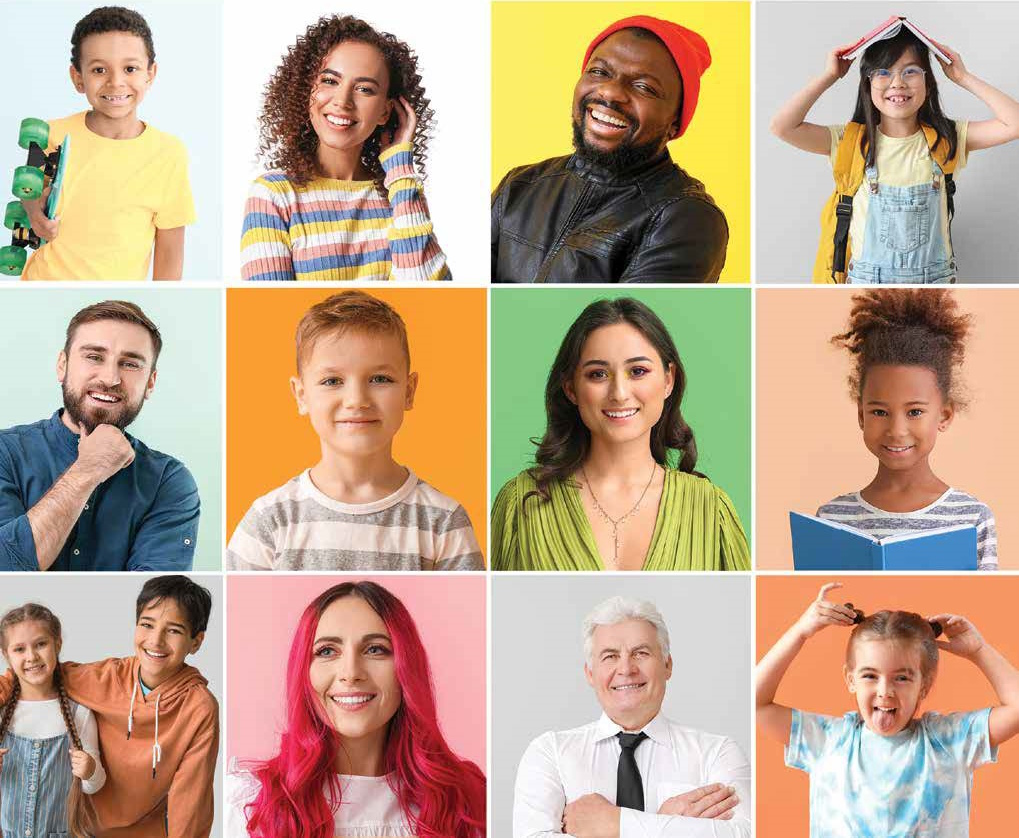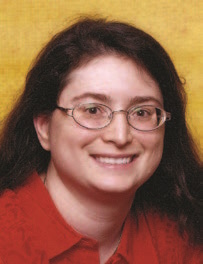ADHD Awareness 2024: Awareness Is Key!


The goals of the early ADHD Awareness Days declared by the United States Senate continue every October with ADHD Awareness Month. This year, the ADHD Awareness Coalition, in partnership with the Centre for ADHD Awareness (Canada), ADHD Europe, and ADHD Australia, is sponsoring online events, webinars, podcasts, and downloadable answers to ADHD questions provided by leading experts in North America and Europe.
CHADD, the ADHD Coaches Organization, and the Attention Deficit Disorder Association formed the ADHD Awareness Coalition to continue sponsoring ADHD Awareness Month in the United States. The same members sponsor the Annual International Conference on ADHD, which will take place this year in Anaheim, California.
Awareness efforts are growing worldwide. In addition to ADHD Awareness Month in North America, Europe, and Australia, ADHD organizations in eastern Europe, Southeast Asia, and China participate in or sponsor ADHD Awareness Month or events in their countries. Most of these events take place during October, while some organizations select months or “care weeks” that are better suited to their countries’ calendars.
“ADHD Awareness Month gives us an opportunity to celebrate the progress we’ve made in ADHD education and advocacy, while understanding there is work that still needs to be done,” says CHADD CEO Laurie Kulikosky, CAE. “We’re working to raise awareness about the importance of early diagnosis and treatment to make life better for the members of the ADHD community. Without ADHD awareness, many children and adults will continue to struggle.”
The ADHD Awareness Coalition and its ongoing work
The first day dedicated to ADHD awareness was celebrated on September 7, 2004, designated by a resolution passed that July by the United States Senate (see the accompanying story [available after October 1]). To build on the momentum of the annual awareness day, the three leading ADHD organizations—CHADD, ACO, and ADDA—soon decided to create a coalition to plan and sponsor future ADHD awareness months.
“ADHD isn’t just in the United States. It’s seen all over the world. Our goal with ADHD Awareness Month is sharing reliable information based on the evidence of science and peer-reviewed research.”
—Roxanne Fouché
“There’s still a huge lack of understanding, a lot of misconceptions about what ADHD is and what it isn’t,” says Roxanne Fouché, director of the ADHD Awareness Month Coalition and the chair of ACO’s Global ADHD Resource Team. “When you think about ADHD, it takes this huge toll on people’s mental health, on their general well-being, on communication and relationships, on their social and family lives. The more that we can get the word out of what ADHD is, the more people can be assisted and helped, and it’s good for everybody.”
The coalition is a year-round endeavor to plan the events and promotional resources for the upcoming ADHD Awareness Month. Each of the three partners send a representative to be part of the planning and resource creation. CHADD’s director of marketing Karen Sampson Hoffman is that organization’s representative. She manages the social media campaign during October.
This October the coalition is focusing on “awareness is key” to finding proper ADHD treatment and support and creating a world where the talents and contributions of individuals who have ADHD can be celebrated.
During ADHD Awareness Month they will host online events, including a panel discussion with experts and coalition representatives. They will also share webinars and podcasts. ADHD experts in the United States, Canada, and Europe will provide answers to many common questions on ADHD, reflecting the specific needs of adults and children and their stages of life.
Among the 2024 presenters and respondents are CHADD’s resident expert L. Eugene Arnold, MD, MEd; professional advisory board members Margaret Sibley, PhD, and Roberto Olivardia, PhD; and public policy committee members Mary V. Solanto, PhD, and Jeffrey S. Katz, PhD. Also included in this year’s lineup will be other experts who have worked closely with CHADD and are well-known in ADHD conversations. CADDAC and ADHD Europe have recruited experts from their countries to contribute knowledge and perspectives on ADHD questions and the issues affecting the ADHD community.
“We are very glad to have these outstanding partners joining us this year,” Fouché says. “ADHD isn’t just in the United States. It’s seen all over the world. Our goal with ADHD Awareness Month is sharing reliable information based on the evidence of science and peer-reviewed research. The more that’s known about ADHD, the more it helps everybody. It helps the people with ADHD, and it helps the neurotypicals of this world to understand what is going on with this person they care about. It helps to reduce the stigma, and it helps people move forward toward getting the supports they need.”
Awareness month events will be added to the coalition’s calendar throughout September and October, so be sure to check their website, ADHDAwarenessMonth.org, or their social media channels for the latest information.
ADHD awareness is for more than one month
You’ve no doubt heard the cliché, “If you’ve met one person with ADHD, then you’ve just met one person with ADHD.” The truth of the saying, though, is there is more than one way to have or express ADHD symptoms and there is more than one way to address the needs of the ADHD community. The experience of each person who has ADHD is unique, even though there are some commonalities to those experiences.
That is why increasing awareness about ADHD is key to improving the lives of so many people.
“ADHD awareness is growing around the world, but there’s still a huge lack of understanding, a lot of misconception about what ADHD is and what it isn’t,” says Fouché. “When you think about it, when there are people who are not recognized, and are not getting treated for ADHD, it takes this huge toll on their mental health, on their general well-being, on communication and relationships, on unemployment, underemployment, health, estimated life expectancy. The more that we can get the word out of what ADHD is, the more people can be assisted and helped, and it’s good for everybody. It’s a win-win.”
“I think it’s really important for the general public to empower themselves to verify things that they’re learning online because a lot of times these stories are relatable,” says Margaret Sibley, PhD, about increasing awareness. “They are being shared by people who truly have ADHD, but sometimes if you’re not a professional, it’s hard to tease out the parts of your life that are due to ADHD versus other things that you have going on.”
CHADD is a trusted provider of information about ADHD. Its National Resource Center on ADHD provides resources on ADHD that have been reviewed by experts for the public and is the country’s clearinghouse for new research and treatment and lifestyle approaches. Anyone can reach out to its health information team by telephone or email to discuss options for ADHD treatment, educational support, and lifestyle management. Team members also answer emails sent to CHADD’s customer service with similar support questions or requests for resources.
“Answering these questions helps to improve the public’s understanding about ADHD and encourages individuals and families to pursue proven treatment options,” says
Zuali Malsawma, MLS, director of CHADD’s NRC. “ADHD is one of the most studied brain-based conditions. Getting reliable answers helps people to make decisions that improve their lives.”
Into the future of ADHD awareness
Each year, more organizations and more countries are getting involved in ADHD Awareness Month. Efforts to increase awareness have spread across the globe, while also increasing among local advocacy and support organizations in the United States. It has grown from one day a year to an ongoing endeavor to get the message out: ADHD affects adults and children, it is a brain-based condition, it has many proven approaches to treatment, and lifestyle supports help to increase everyone’s odds of success in life.
“ADHD is a serious public health issue,” says Fouché. “But it doesn’t have to limit anyone’s goals in life. We are working toward a world that empowers all people with ADHD. A world where every person with ADHD is encouraged to use their strengths. Where all are free to ask for support and to seek appropriate treatment.”
The work of awareness is done by more than just the coalition formed by CHADD, ACO, and ADHD, or its partners around the world.
“A coalition is forming among all of us who work to improve the lives of people and their families affected by ADHD,” says Kulikosky. “Together we will provide individuals and families with the support they need to thrive. We will provide educators with the training they need to educate students who have ADHD, and we will provide ADHD professionals with the information and guidance they need to support their patients or clients. As we go forward, we will provide the information and advocacy needed to end any trace of stigma surrounding ADHD.”



 Karen Sampson Hoffman, MA, CDMP, is CHADD’s director of marketing and the editor of ADHD Weekly.
Karen Sampson Hoffman, MA, CDMP, is CHADD’s director of marketing and the editor of ADHD Weekly.